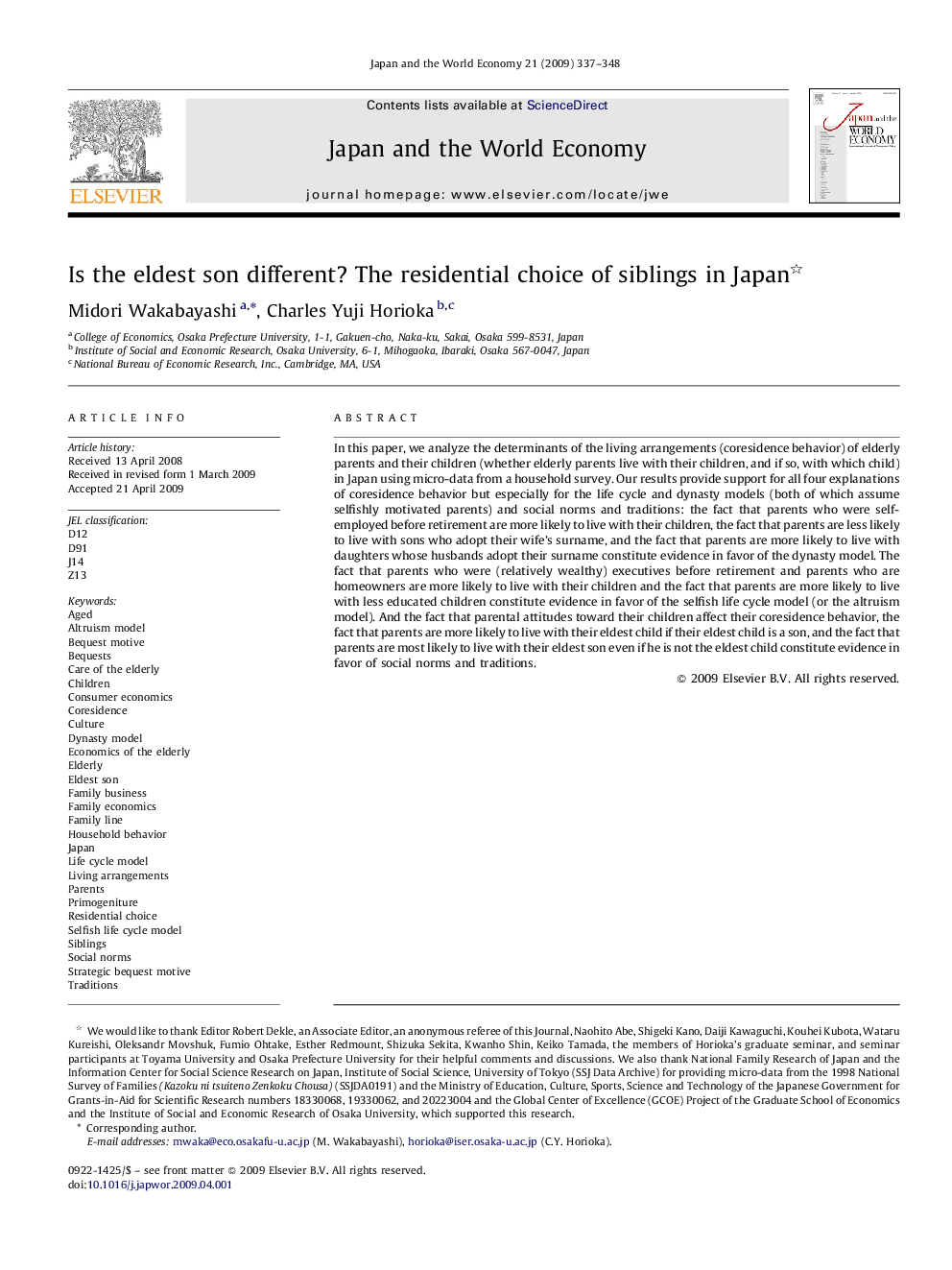| Article ID | Journal | Published Year | Pages | File Type |
|---|---|---|---|---|
| 5086258 | Japan and the World Economy | 2009 | 12 Pages |
Abstract
In this paper, we analyze the determinants of the living arrangements (coresidence behavior) of elderly parents and their children (whether elderly parents live with their children, and if so, with which child) in Japan using micro-data from a household survey. Our results provide support for all four explanations of coresidence behavior but especially for the life cycle and dynasty models (both of which assume selfishly motivated parents) and social norms and traditions: the fact that parents who were self-employed before retirement are more likely to live with their children, the fact that parents are less likely to live with sons who adopt their wife's surname, and the fact that parents are more likely to live with daughters whose husbands adopt their surname constitute evidence in favor of the dynasty model. The fact that parents who were (relatively wealthy) executives before retirement and parents who are homeowners are more likely to live with their children and the fact that parents are more likely to live with less educated children constitute evidence in favor of the selfish life cycle model (or the altruism model). And the fact that parental attitudes toward their children affect their coresidence behavior, the fact that parents are more likely to live with their eldest child if their eldest child is a son, and the fact that parents are most likely to live with their eldest son even if he is not the eldest child constitute evidence in favor of social norms and traditions.
Keywords
Related Topics
Social Sciences and Humanities
Economics, Econometrics and Finance
Economics and Econometrics
Authors
Midori Wakabayashi, Charles Yuji Horioka,
